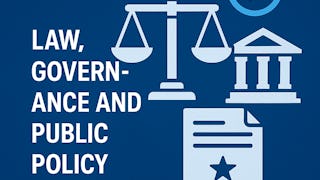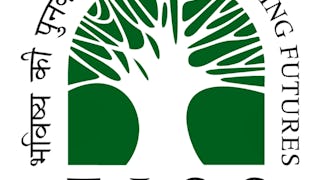Welcome to the Democratic Governance and Policymaking course! In this course, you will learn that all citizens collectively desire public goods such as justice, peace, and welfare, but beyond their individual means. A state is a politically organized society to fulfill citizens’ public good needs. Politics is an activity in pursuit of the collective interests of the citizens. Policymaking is a collective action to identify, adequately provide, and equitably allocate desired public goods. However, arriving at a collective choice on who gets what, when, and how much, and who decides and how, faces joint action problems. This often leads to a policy gap between citizens’ preferences and policy provision, resulting in a loss of well-being. Governance in policymaking is about providing stewardship to these collective efforts through institutional mechanisms to minimize the policy gap. Democracy in governance is about the active participation of citizens, directly or indirectly, at all stages of policymaking.


您将学到什么
Explain the challenges in public good provision in a complex heterogeneous society using the policy gap framework.
Acquire insights on pathways linking citizen participation with effective policymaking and appreciate its limitations.
Develop the ability to engage in an informed way in discourses on governance issues.
Develop empirical approaches to measure democratic governance and its determinants.
您将获得的技能
要了解的详细信息

添加到您的领英档案
September 2025
29 项作业
了解顶级公司的员工如何掌握热门技能

该课程共有7个模块
In this module, you will examine the evolution of society from a simple homogeneous unit to a complex heterogeneous state. The module also analyzes how heterogeneity can lead to multi-peaked preferences for the public good needs and the collective action problems in aggregating such preferences into a collective choice for policymaking.
涵盖的内容
10个视频3篇阅读材料4个作业
In this module, you will conceptualize governance as a social mechanism designed to provide stewardship to the collective action by the citizens. Lastly, it explains how institutionalizing the rules (of the game) and their enforcement enables collective action for public goods.
涵盖的内容
10个视频2篇阅读材料4个作业
In this module, you will be introduced to deliberative participation and its guiding and regulatory principles. You will be able to understand how deliberative participation can enable collective action for collective choice in a policymaking context. The module provides an empirical framework that can be used to develop approaches to make participation more deliberative ex-ante and evaluate the deliberative quality of participation, ex-post.
涵盖的内容
10个视频2篇阅读材料4个作业
In this module, you will gain an understanding of the need for representation in democratic governance through four questions, that is, represent what, represent whom, who can represent, and how should representation happen. The module concludes with a brief analysis of how the nature of representation can bear upon the effectiveness of public policy.
涵盖的内容
8个视频2篇阅读材料4个作业
In this module, you will examine the rationale for multi-order democratic governance from different perspectives. You will be able to critically analyze the political economy challenges in policymaking in such a context, and how these challenges may influence policy effectiveness.
涵盖的内容
8个视频2篇阅读材料4个作业
In this module, you will empirically test the supposition that democratic governance improves policy effectiveness by reducing policy gaps. Toward this, you will be intrigued to ask the research question: whether and how deliberative participation in policymaking institutions improves the provision of local public goods. Later you will find evidence in a throughput study of the local governments of India.
涵盖的内容
8个视频1篇阅读材料5个作业
This module is motivated by the question: what explains the effectiveness of democratic governance? It starts with a critical analysis of popular composite measures of the quality of democratic governance. Following this, it seeks to find answers to the question, in two broad categories of determinants: Attributes of the community, and attributes of the citizens.
涵盖的内容
8个视频2篇阅读材料4个作业
攻读学位
课程 是 O.P. Jindal Global University提供的以下学位课程的一部分。如果您被录取并注册,您已完成的课程可计入您的学位学习,您的学习进度也可随之转移。
位教师

从 Governance and Society 浏览更多内容
 状态:预览
状态:预览O.P. Jindal Global University
 状态:预览
状态:预览O.P. Jindal Global University
 状态:预览
状态:预览Universiteit Leiden
 状态:预览
状态:预览Tata Institute of Social Sciences
人们为什么选择 Coursera 来帮助自己实现职业发展




常见问题
To access the course materials, assignments and to earn a Certificate, you will need to purchase the Certificate experience when you enroll in a course. You can try a Free Trial instead, or apply for Financial Aid. The course may offer 'Full Course, No Certificate' instead. This option lets you see all course materials, submit required assessments, and get a final grade. This also means that you will not be able to purchase a Certificate experience.
When you purchase a Certificate you get access to all course materials, including graded assignments. Upon completing the course, your electronic Certificate will be added to your Accomplishments page - from there, you can print your Certificate or add it to your LinkedIn profile.
Yes. In select learning programs, you can apply for financial aid or a scholarship if you can’t afford the enrollment fee. If fin aid or scholarship is available for your learning program selection, you’ll find a link to apply on the description page.
更多问题
提供助学金,



